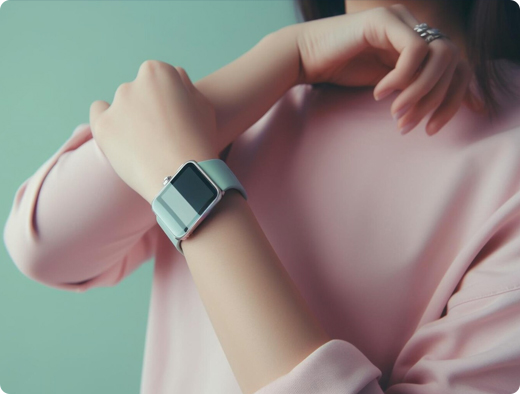Wearables in Healthcare: Opportunities & Challenges
In recent years, the excitement around the potential for wearables to transform healthcare has seen a sharp incline. These devices have the potential to provide real-time data on patients’ health, which could allow doctors to detect and treat health concerns early. Additionally, wearables could help patients manage their own health by giving them access to insights and reminding them to take medications or stay active.
However, while there is a lot of opportunities for wearables in healthcare, there are also some challenges that need to be addressed before they can truly be transformative. Let’s look at both the opportunities and the challenges of using wearables in healthcare.
The Opportunities of Wearables in Healthcare
One of the biggest opportunities for wearables in healthcare is the ability to provide real-time data on patients’ health to detect any change in health status and intervene proactively. For example, if a patient’s oxygen saturation is too low, a wearable can automatically notify a qualified healthcare professional to respond appropriately.
Additionally, wearables could help patients monitor their own health with convenience like never before by giving them access to actionable insights or alerts. These can range from reminding them to take medications, consider a mindful moment or stay active. For example, a wearable could vibrate to remind a patient to take their medication at the same time every day or provide sedentary alerts to prompt more physical activity.
The Challenges of Wearables in Healthcare
While the opportunities for wearables in healthcare are ever-evolving, it is critical to address the challenges before they can truly be transformative. One of the biggest challenges is data privacy and security. Because wearables collect sensitive health information, there is a risk that this information could be hacked or leaked. Therefore, it’s important that any wearable device used in healthcare is equipped with robust security features.
Another challenge is accuracy. While the accuracy of wearable continues to improve at a rapid pace, they’re not perfect yet and may yield false positive or negative results. Therefore, doctors will need to interpret the data from these devices with caution and may need to confirm results with other tests or procedures. Doctors should ensure that devices being relied upon for patient care have appropriate regulatory clearances and proven accuracy.
Conclusion
Wearables have the potential to revolutionize healthcare by providing real-time data on patients’ health and empowering patients with the tools to be able to manage their own health. However, challenges including data privacy and security concerns and accuracy issues, all need to be addressed before wearables can truly be relied upon for transforming healthcare.




